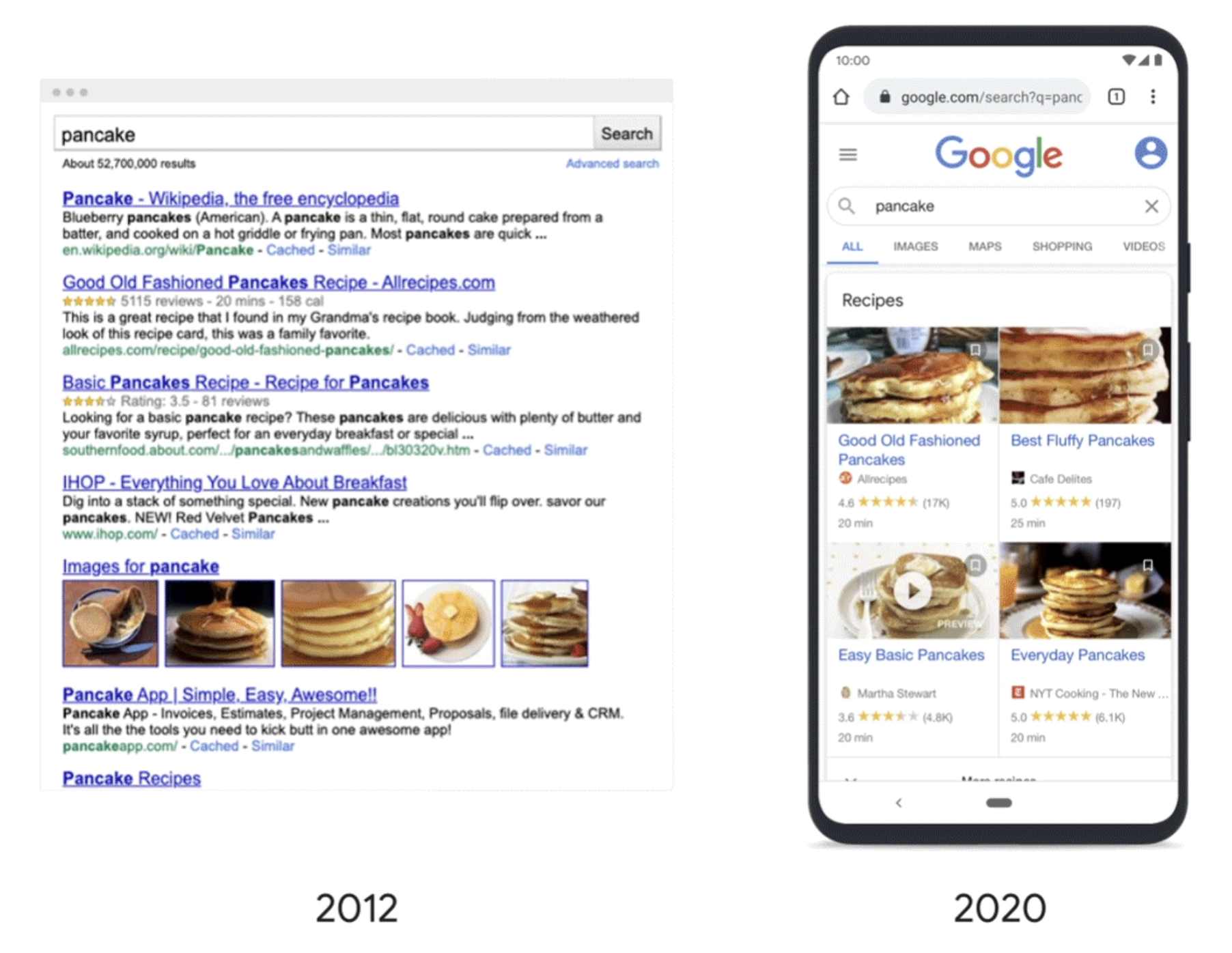Google goes over how its search index is organized, and how it makes SERPs useful, in a new explainer published to the company’s blog.
The document discusses what Google’s primary goals are with respect to presenting search results.
Above all, Google aims to organize information in search results in ways that are easy to scan and digest.
Google’s greatest challenge today is not just indexing everything out there, but presenting it in a way that’s useful and accessible to searchers.
Here’s an overview of key takeaways from the explainer.
Organizing Information in Google Search Results
In the early days of Google its search index was updated only once a month. Now, there’s so much information to organize that Google’s search index never stops being updated.
Making search results easy to scan and digest is of the utmost concern, and SERPs will often be presented in a different format according to the information being sought.
“When looking for jobs, you often want to see a list of specific roles. Whereas if you’re looking for a restaurant, seeing a map can help you easily find a spot nearby.”
Google offers a wide range of features designed to make search results easier to scan, such as:
- Video and news carousels
- Rich imagery for recipe results
- Star labels for reviews
- Knowledge panels for people, companies, and event
- And so on
These features are especially prevalent on mobile, where results have evolved from the traditional 10 blue links to now having an average of 26 links on a mobile results page.

Google says the addition of rich features is mutually beneficial to searchers and publishers. People are able to find what they’re looking for more easily, and websites have a greater opportunity to appear on the first page.
Further, as Google improves the experience for users data shows they’re spending more time on pages they visit:
“By improving our ability to deliver relevant results, we’ve seen that people are spending more time on the webpages they find through Search. The amount of time spent on websites following a click from Google Search has significantly grown year over year.”
Ranking Search Results
Another way Google organizes information in a way that’s useful to searchers is by ranking it to show the most helpful information at the top.
“To make all of this information truly useful, we also must order, or “rank,” results in a way that ensures the most helpful and reliable information rises to the top.
Our ranking systems consider a number of factors–from what words appear on the page, to how fresh the content is–to determine what results are most relevant and helpful for a given query.”
In cases where Google is able to provide a single indisputable answer to a query, then it will do exactly that.
Direct answers aren’t an option for all queries, so Google will do the next-most-useful thing by matching results according to search intent.
“Take a query like “pizza”–you might be looking for restaurants nearby, delivery options, pizza recipes, and more…
Ranking a pizza recipe first would certainly be relevant, but our systems have learned that people searching for “pizza” are more likely to be looking for restaurants, so we’re likely to show a map with local restaurants first.”
Google concludes its explainer by saying ranking is dynamic and it understands the meaning of queries can change day-by-day. To keep up with the changes, Google is constantly evaluating the quality of search results to ensure it’s still providing the most relevant information.
Thousands of changes are made to search results each year. They range from minor tweaks that largely go unnoticed, to major core updates that affect all search results worldwide.
Google signs off by saying “search will never be a solved problem,” but the company is committed to always improving.
Source: blog.google





